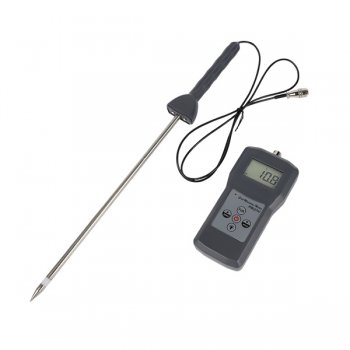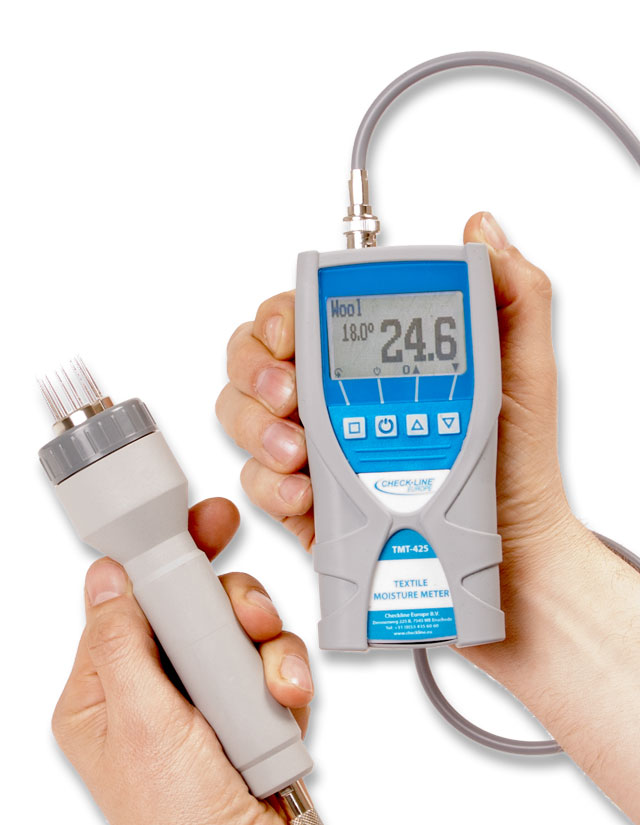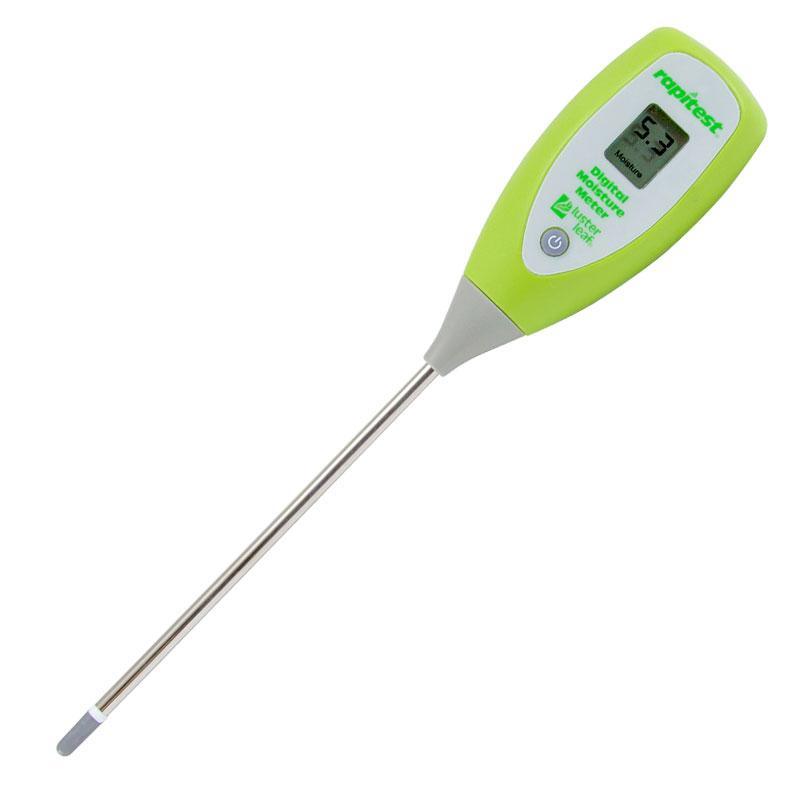The Ultimate Overview to Moisture Meters: A Comprehensive Overview and Just How They Can Save You Cash
In the realm of structure upkeep, building and construction, and different markets, the importance of accurately determining moisture degrees can not be overstated. Wetness meters act as indispensable tools in discovering and keeping track of moisture web content in materials, helping in stopping pricey problems and guaranteeing the top quality of products. Understanding the subtleties of various sorts of dampness meters, their applications, and the prospective cost-saving advantages they provide can be a game-changer for businesses and specialists alike. Uncovering how these tools can not just enhance procedures however also add to monetary savings is a journey worth getting started on.
Sorts Of Moisture Meters
Various kinds of dampness meters are available for various applications in numerous markets. One usual kind is the pin-type wetness meter, which determines the electric resistance between 2 pins put right into a product. This kind appropriates for timber, drywall, and various other structure products. Pinless wetness meters, on the other hand, use electro-magnetic sensor plates to check a bigger area without creating damages to the material's surface. These meters are perfect for rapidly analyzing dampness levels in huge locations such as walls and floorings.
Furthermore, there are additionally specialty dampness meters created for details materials like grain, hay, or dirt. These meters supply exact wetness analyses tailored to the unique buildings of the material being evaluated. Infrared dampness meters gauge the thermal properties of a material to establish its dampness material non-invasively, making them useful for applications where pin or pinless meters may not appropriate. Recognizing the different sorts of moisture meters available can assist markets pick one of the most ideal device for their particular wetness dimension requirements.

Advantages of Making Use Of Moisture Meters

In addition, using wetness meters can lead to boosted energy performance. In farming settings, dampness meters play a crucial role in optimizing plant returns by allowing farmers to keep track of soil wetness degrees and make notified irrigation choices.
Exactly How to Choose the Right Moisture Meter
Selecting the suitable dampness meter includes thinking about crucial aspects such as material compatibility, measurement array, and calibration accuracy. When choosing a dampness meter, it's important to make certain that the meter is suitable for the certain product you will be screening. Various products have differing electric residential properties that can influence wetness readings, so selecting a meter made for your product is essential for precise results. In addition, take into consideration the dimension variety of the wetness meter. Ensure that the meter can detect moisture levels within the array needed for your applications. Calibration accuracy is an additional vital aspect to bear in mind (Moisture Meter). Choose a dampness meter with reliable calibration to make certain consistent and specific readings. Some meters might call for periodic calibration modifications, so comprehending the calibration process is essential. By very carefully assessing these factors, you can choose a dampness meter that satisfies your demands and offers exact moisture dimensions for your tasks.
Proper Techniques for Moisture Meter Use
To make certain precise moisture readings and take full advantage of the performance of a dampness meter, utilizing proper techniques is important. When utilizing a pin-type dampness meter, place the pins or probes right into the material being checked until they make complete call. By adhering to these correct techniques, individuals can rely on their try here dampness meter to give trustworthy moisture degrees, helping in protecting against expensive damage or making certain high quality in different applications.

Price Cost Savings With Moisture Meter Applications
How can the calculated application of moisture meters lead to substantial price financial savings across different industries? In the agriculture sector, wetness meters help in determining the optimal time for gathering crops, avoiding over-drying or excess wetness that can affect the last item's quality.

Furthermore, in the food processing sector, dampness meters are vital for keeping track of product high quality and making sure conformity with security regulations. By accurately measuring dampness content in food, manufacturers can prevent putridity, maintain freshness, and lower waste, causing substantial price savings. Overall, the strategic application of dampness meters is a useful investment that can bring about considerable price decreases and boosted efficiency throughout various markets.
Final Thought
In final thought, wetness meters are important tools for gauging and detecting wetness levels in various products. By making use of the best wetness meter and following appropriate strategies, customers can successfully avoid expensive damages created by excess dampness.
Wetness meters serve as essential devices in spotting and monitoring moisture material in products, assisting in avoiding pricey problems and making certain the high quality of products. Infrared wetness meters determine the thermal homes of a material to establish its moisture content non-invasively, making them valuable for applications where pin or pinless meters might not be ideal.Wetness meters provide very useful benefits in accurately checking and assessing wetness levels in diverse materials and atmospheres. In farming setups, moisture meters play an essential role in maximizing plant yields by allowing farmers to keep an eye on dirt moisture degrees Going Here and make educated irrigation choices.In final thought, wetness meters are beneficial tools for spotting and gauging moisture levels in various materials.